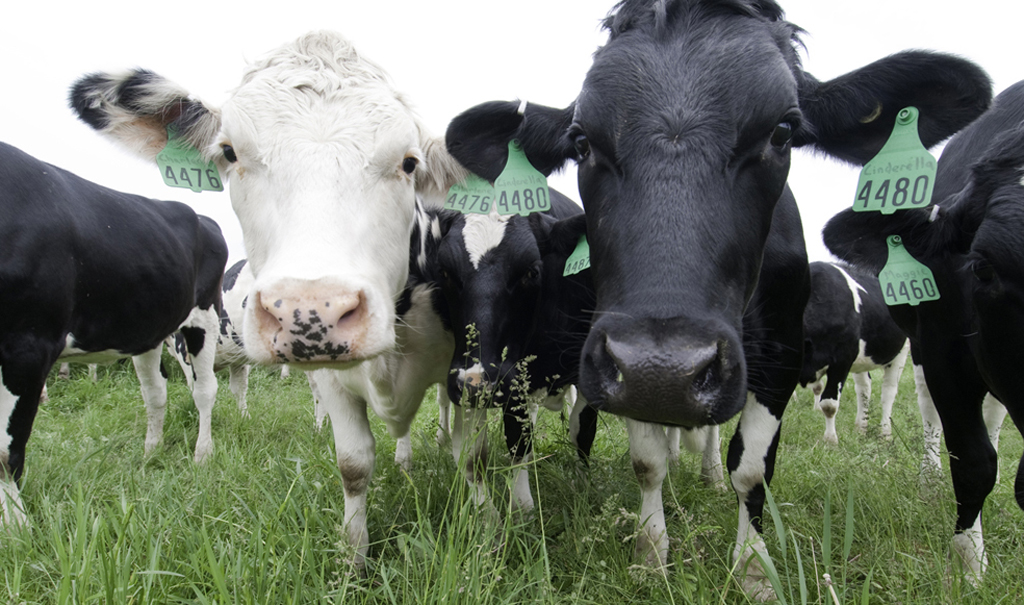
Dairy cattle on the MSU dairy farm.
A Michigan State (MSU) AgBioResearch animal scientist is among a group of researchers who have received a $3 million grant from the U.S. Department of Agriculture National Institute of Food and Agriculture (USDA NIFA) through its Translational Genomics Program to study the genetic basis of resistance or susceptibility to Johne’s disease over the next five years.
Johne’s disease is a contagious, untreatable and fatal gastrointestinal disease of domesticated ruminant livestock. It ranks as one of the most costly infectious diseases of dairy cattle, affecting 65 percent of U.S. dairies.
“Our long-term objective is to use the tools of modern genetics and immunology to understand why only some cattle get sick following infection with Mycobacterium avium subspecies paratuberculosis (MAP), the causative agent of Johne’s disease, and to determine if it is possible to breed cattle that are more resistant to the devastating effects of clinical Johne’s disease,” said Paul Coussens, a professor in the MSU departments of Animal Science and Microbiology and Molecular Genetics and director of the MSU Molecular Pathogenesis Laboratory.
He is working on the project with C. Titus Brown, an assistant professor in the MSU departments of Computer Science and Engineering, and Microbiology and Molecular Genetics, and Brian W. Kirkpatrick, an animal sciences professor at the University of Wisconsin-Madison.
The slow, progressive nature of Johne’s disease makes diagnosis difficult, especially during the early preclinical stages. There are no cost-effective therapies, and vaccines — which aren’t used in the United States — do not prevent infections or stop the spread of the disease to other animals. In addition, there may be a link between Johne’s disease and Crohn’s disease, an incurable inflammatory intestinal disorder affecting humans.
“Our ultimate objective is to work with dairy producers and breeders to ensure that our results are used in the industry to breed cattle that are resistant to Johne’s disease and thereby improve profitability, animal welfare and the overall safety of our food supply,” Coussens said.











